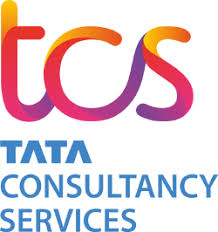Personalizing epilepsy treatment
%201%20(1).png)
NeuroPace, a medical device company, built a solution to quickly identify effective epilepsy treatment options best suited to different patients.
.png)
77
AI use cases in
Healthcare

%201%20(1).png)
Cactus Life Sciences implemented Microsoft 365 Copilot to automate routine tasks and augment the generation of scientific content under human oversight. They integrated the tool into their Microsoft 365 workflows to assist with drafting, editing, and approving complex scientific communications, streamlining content creation and dissemination processes. This approach improved the efficiency of internal content workflows enabling faster communication of critical scientific data to stakeholders.
%20(1).png)

%201%20(1).png)
Indegene integrated Microsoft 365 Copilot into its suite of productivity tools, including Word, Excel, PowerPoint, Outlook, and Teams, to automate routine email responses, document summarization, data analysis, and RFP development. The solution was implemented across departments such as content, pre-sales, finance, and project management, ensuring stringent data security and privacy standards while streamlining critical business workflows.
%20(1).png)

%201%20(1).png)
Ontada leveraged Microsoft’s Azure OpenAI Service Batch API and Azure AI Foundry to build its ON.Genuity platform, which processes 150 million unstructured oncology documents to automatically extract nearly 100 critical data elements across 39 cancer types. They integrated the new platform with their structured iKnowMed system using Azure Databricks for data ingestion and Azure Document Intelligence for text extraction, transforming manual chart review processes into an automated workflow that supports clinical decision-making and life science product development.
%20(1).png)
151
companies using
Data Agents

%201%20(1).png)
wealthAPI implemented a next‐gen contract detection solution by integrating DataStax Astra DB on Google Cloud and leveraging Google Gemini models for AI‐powered analysis. They deployed DataStax’s vector search and real‐time insights capabilities to scale contract detection across millions of users in less than three months, streamlining wealth management workflows by dramatically reducing response times and efficiently handling massive data volumes.
%20(1).png)

%201%20(1).png)
Aura Intelligence integrated Anthropic's Claude via Amazon Bedrock into its data pipeline to automatically classify over 200 million job titles and industry pairings from multi-language data, replacing manual lookups and fuzzy matching. They fine-tuned foundation models on proprietary datasets and leveraged AWS infrastructure, including SageMaker and prompt management, to automate QA, report generation, anomaly detection, and real-time hiring trend analysis.
%20(1).png)

%201%20(1).png)
LaunchNotes leverages Claude in Amazon Bedrock in their product 'Graph' to transform engineering data into actionable insights. Graph functions as an ETL platform with Claude managing data pipelines, helping engineering managers understand development metrics, reduce incident identification time, automate updates, and generate customized release notes and technical documentation.
%20(1).png)
263
solutions powered by

%201%20(1).png)
TCS partnered with Google Cloud to integrate advanced AI and generative AI capabilities into retail service offerings. They launched the Google Cloud Gemini Experience Center at their Retail Innovation Lab in Chennai, enabling retail clients to ideate, prototype, and co-develop tailored AI solutions that optimize supply chain, warehouse receiving, customer insights, and content creation. This approach automated processes using tools like Vertex AI Vision for warehouse receiving and leveraged Vertex AI with Gemini 1.5 Pro and speech-to-text to transform service centers.
%20(1).png)

%201%20(1).png)
Deutsche Bank developed DB Lumina, an AI-powered research agent built on Gemini and Vertex AI through a partnership with Google Cloud. The solution automates the creation of financial research reports by rapidly condensing extensive market data—such as converting a 400-page report into a three-page summary—thereby streamlining analysis workflows while maintaining rigorous data privacy standards.
%20(1).png)

%201%20(1).png)
NVIDIA partnered with Google Cloud to enable on-premises agentic AI by integrating Google Gemini models with NVIDIA Blackwell platforms and Confidential Computing, ensuring data sovereignty and regulatory compliance for sensitive enterprise operations. The solution further optimizes AI inference and observability by deploying a GKE Inference Gateway alongside NVIDIA Triton Inference Server, NVIDIA NeMo Guardrails, and NVIDIA Dynamo to enhance secure routing and load balancing for enterprise workloads.
%20(1).png)
284
AI use cases in
North America

%201%20(1).png)
Cox Automotive integrated Claude via Amazon Bedrock into its portfolio by first creating a sandbox environment to evaluate performance metrics and then selecting Claude 3.5 Sonnet for complex tasks and Claude 3.5 Haiku for high-volume content generation. They automated personalized dealer-consumer communications, generated engaging vehicle listing descriptions, and produced SEO-optimized blog posts, while also streamlining internal data governance through automated metadata generation. This integration optimized operational efficiency across marketing and internal data processes.
%20(1).png)

%201%20(1).png)
Intuit integrated Google Cloud’s Document AI and Gemini models into its GenOS platform to automate the autofill of ten common U.S. tax forms, including complex 1099 and 1040 forms. The solution extracts and categorizes data from uploaded documents, drastically reducing manual data entry for TurboTax customers. This integration streamlines tax preparation workflows and improves speed and accuracy.
%20(1).png)

%201%20(1).png)
Block implemented Anthropic’s Claude models (Claude 3.5 Sonnet and Claude 3.7 Sonnet) on its Databricks platform to power its internal AI agent, codename goose. They integrated the LLM using secure OAuth-enabled connections and a custom MCP server to connect internal databases and tools, enabling employees across all roles to auto-generate SQL queries, analyze complex data, and automate workflows. This agentic integration streamlined software development, design prototyping, and data analysis by translating user intents into actionable insights.
%20(1).png)
%201%20(1).png)
%202.png)

%202.png)
%201.png)
%201.png)
%20(1)%20(1).png)
.png)


.png)
.svg)


.png)


.png)









%201.png)